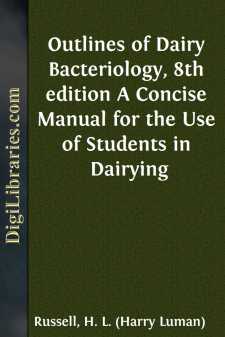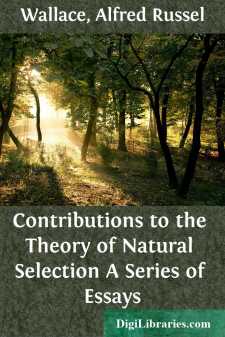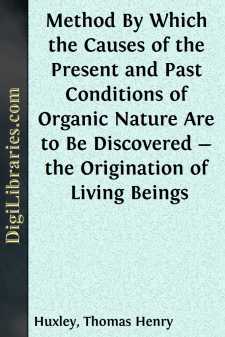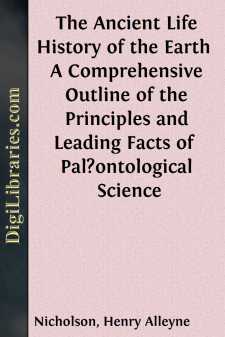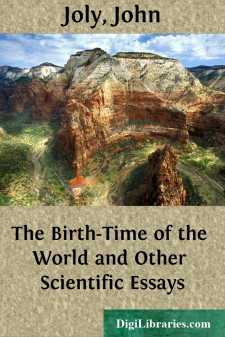Science
- Astronomy 18
- Biology 40
- Chemistry 13
- Electricity 1
- General 38
- History 6
- Light 1
- Paleontology 2
- Philosophy & Social Aspects 1
- Physics 3
- Relativity 2
- Study & Teaching 1
- Waves & Wave Mechanics 1
Science Books
Sort by:
PREFACE A collection of about 2000 questions asked by children forms the foundation on which this book is built. Rather than decide what it is that children ought to know, or what knowledge could best be fitted into some educational theory, an attempt was made to find out what children want to know. The obvious way to discover this was to let them ask questions. The questions collected were asked by...
more...
CHAPTER I. STRUCTURE OF THE BACTERIA AND CONDITIONS GOVERNING THEIR DEVELOPMENT AND DISTRIBUTION. Before one can gain any intelligent conception of the manner in which bacteria affect dairying, it is first necessary to know something of the life history of these organisms in general, how they live, move and react toward their environment. Nature of Bacteria. Toadstools, smuts, rusts and mildews are...
more...
PREFACE. The present volume consists of essays which I have contributed to various periodicals, or read before scientific societies during the last fifteen years, with others now printed for the first time. The two first of the series are printed without alteration, because, having gained me the reputation of being an independent originator of the theory of “natural selection,” they may be...
more...
IN the lecture which I delivered last Monday evening, I endeavoured to sketch in a very brief manner, but as well as the time at my disposal would permit, the present condition of organic nature, meaning by that large title simply an indication of the great, broad, and general principles which are to be discovered by those who look attentively at the phenomena of organic nature as at present displayed....
more...
In the two preceding lectures I have endeavoured to indicate to you the extent of the subject-matter of the inquiry upon which we are engaged; and now, having thus acquired some conception of the Past and Present phenomena of Organic Nature, I must now turn to that which constitutes the great problem which we have set before ourselves;—I mean, the question of what knowledge we have of the causes of...
more...
CHAPTER I. A HALF-HOUR ON THE STRUCTURE OF THE TELESCOPE. There are few instruments which yield more pleasure and instruction than the Telescope. Even a small telescope—only an inch and a half or two inches, perhaps, in aperture—will serve to supply profitable amusement to those who know how to apply its powers. I have often seen with pleasure the surprise with which the performance even of an...
more...
THE THREE HYPOTHESES RESPECTING THE HISTORY OF NATURE. We live in and form part of a system of things of immense diversity and perplexity, which we call Nature; and it is a matter of the deepest interest to all of us that we should form just conceptions of the constitution of that system and of its past history. With relation to this universe, man is, in extent, little more than a mathematical point;...
more...
INTRODUCTION. THE LAWS OF GEOLOGICAL ACTION. Under the general title of "Geology" are usually included at least two distinct branches of inquiry, allied to one another in the closest manner, and yet so distinct as to be largely capable of separate study. Geology,[1] in its strict sense, is the science which is concerned with the investigation of the materials which compose the earth, the...
more...
by:
John Joly
PREFACE Tins volume contains twelve essays written at various timesduring recent years. Many of them are studies contributed toScientific Reviews or delivered as popular lectures. Some areexpositions of views the scientific basis of which may beregarded as established. Others—the greater number—may bedescribed as attempting the solution of problems which cannot beapproached by direct observation....
more...
by:
James Mactear
The study of the History of Chemistry as an art, or as a science, is one which possesses peculiar fascination for its votaries. It has been the subject of deep research and much discussion, much has been written upon the subject, and many theories have been broached to account for its origin. We have had laid before us by Professor Ferguson, in his papers on this subject of Chemical History, very...
more...



